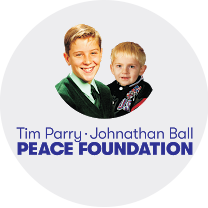Support for children and young people
The Manchester Resilience Hub
The hub is an enhanced NHS mental health service set up to specifically help people who have been affected by the Manchester Arena attack.
You can contact the hub if you
- have been directly affected by the incident
- have a family member who was affected
- were working at the Arena that night, either as staff, at the station, or an emergency responder.
You can contact them for help by email or visit the resilience hub website.
Manchester Attack Support
The service is for people affected by the Manchester Arena attack, funded by the We Love Manchester Emergency Fund and hosted by the Centre for Collective Trauma.
The group connects individuals to sources of information and support including dedicated Manchester attack peer support groups, as well as other tailored help.
You can contact Manchester Attack Support by completing a form on its website.
Child Bereavement UK
Have developed an app called ‘Grief’ it has been created by a group of bereaved young people working directly. It is aimed at 11-25 year old’s who have lost someone important to them.
It can also be used by friends, teachers, parents and professionals who would like to know how to support bereaved young people.
The app has information about:
- bereavement
- grief
- feelings
- how others can help
It includes a built-in notepad so you can write down how you are feeling and also links to Child Bereavement UK’s website where you can find support organisations near you. The website also provides information and support about grief, dealing with your feelings and finding support, as well as tips from young people on handling special occasions.
The Grief app, is free of charge and can be downloaded at the App Store or from the Child Bereavement UK website.
Victim Support
Has been providing emotional and practical support to those affected by the Manchester attack. They have dedicated caseworkers across the country that can support people either over the phone or face to face, for as long as it takes to overcome the impact of the attack.
Caseworkers will work with you to assess your needs. They will give you advice or refer you to other specialist organisations that can help.
You can contact them by
- Phone
- 0161 200 1950 Manchester team directly
- 08 08 16 89 111 (national 24-hour Support Line)
- Web
British Red Cross
To help children and young people cope and come to terms with the Manchester attack, the British Red Cross have developed two learning packages for teachers and support workers:
- support for children (primary school)
- support for young people (secondary school)
You can also find information and resources to provide support for bereaved pupils, schools and staff on the Child Bereavement UK website.
Parents & carers supporting bereaved children
Losing someone important to you is one of the hardest things to experience in life. If you’re young, bereavement can be even more difficult. But support and advice are available to help you get through it.
Emotions after bereavement
Grieving is a natural part of recovering from a bereavement, and everyone’s experience of grief is different. There are no rules about what we should feel and for how long.
But many people find they feel a mixture of the following
- sadness
- shock, particularly if the death was unexpected
- relief, if the death followed a long period of illness
- guilt and regret
- anger
- anxiety
- despair and helplessness
- depression
These feelings may be very intense, particularly in the early days and weeks. Time eventually helps these intense emotions subside, and there’s no need to feel guilty about starting to feel better. It doesn’t mean we’re not respecting the person’s memory or forgetting about them.
There are several things that can help people to start to feel better. Looking after your health and talking to someone will help you get through this difficult time.
Finding support for bereavement
Talking about grief is an important part of getting through a bereavement. Choosing who to talk to about our feelings is a very personal decision. Sometimes the most unlikely person can actually offer the most support.
If you’ve lost a family member, someone else in your family may also be good to open up to because they’re likely to understand how you’re feeling.
A close friend can be a good listener and a source of comfort and support, even if they haven’t gone through this themselves.
There are lots of other sources of advice and support available, including
- websites and blogs – such as Hope Again, a website for young people going through a bereavement, where you can find information, read other people’s experiences, and add your own; the Child Bereavement Charity websites also offer information and advice.
- helplines – such as the Cruse Bereavement young people’s helpline on 0844 477 9400.
- your GP – especially if you’re concerned you’re not coping, might be depressed, have trouble eating or sleeping, are thinking about hurting yourself, or you’re not starting to feel better after a few months: they may suggest you have counselling.
- Winston’s Wish (WW) – is a national charity supporting children and their families after the death of a parent or sibling. Their website includes information and guidance on the needs of children and young people when someone important in their life has died. It includes helpful tips and important reminders for parents and carers supporting a bereaved child.WW also runs a UK-wide national email and telephone service offering support, information and advice to anyone. They are staffed by people with extensive experience and the ASK email service has up to date knowledge of supporting bereaved children and their families. Contact them by email or phone 08088 020 021 (calls are free and confidential. Open 9am and 5pm, Monday to Friday except Bank Holidays).
- a teacher or tutor – you may be distracted or find it hard to concentrate at school or college for a while, so talking to a teacher you feel comfortable with can help them understand what you’re going through and take a bit of pressure off you; special circumstances, such as bereavement, can sometimes be taken into account if you’re having trouble with coursework or exams.






